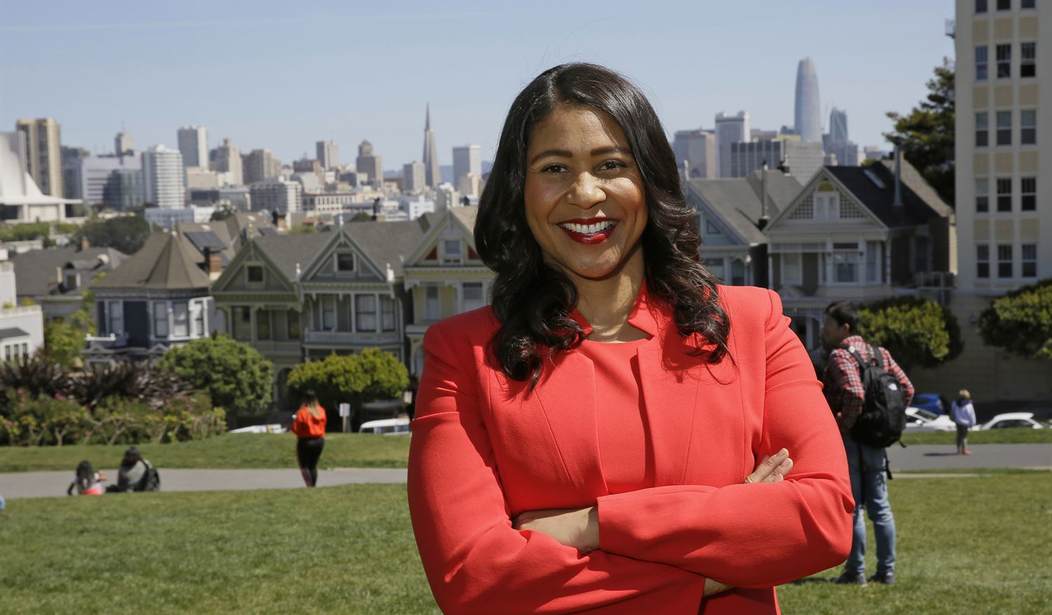Top News
‘I’m scared’: San Francisco’s Crackdown on Drug Dealers is Working (But How Long Will It Last?)

Mayor London Breed announced plans to put an end to the city’s open-air drug markets back in May. Naturally, the city’s socialists were against this but the mayor went ahead with her plan anyway.
A curious aspect of the drug trade in SF is that most of it is dominated by Honduran migrants known as “Hondos” on the streets. The SF Chronicle did a deep dive on the Hondos in July. Most of them come from the same town in Honduras. They spend a few years selling drugs in SF and build a big mansion back home with the profits.
While here, they treat drug dealing as a 9-5 job, living in rental apartments in Oakland and taking the train into the city to sell fentanyl for the day. The dealers hire homeless people to hold their stash so they won’t get caught with it.
Yesterday the Chronicle reported that a lot of dealers have been taken off the streets during the crackdown. The dealers are now afraid to sell, at least during the daytime.
Five months after local and national law enforcement officials launched crackdowns on San Francisco’s open-air drug markets, one longtime dealer said he won’t risk venturing into the Tenderloin much anymore.
“I’m scared,” he said in a recent interview, noting that he’s lately preferred to work construction shifts. The source, who has dealt drugs in San Francisco on and off for nearly two decades, said what was once a full-time job has been pared down to about an hour a week, and most of the other dealers he knows are avoiding the area as well.
Part of what’s working right at the moment is that the courts are cooperating with the effort. A new fast-track option has been created by federal prosecutors:
Since August, federal prosecutors have employed a new fast-track option for more than a dozen suspected low-level dealers with minimal criminal records, adjudicating their cases in as few as 10 days. They can plead guilty and avoid additional jail time if they agree to stay away from the Tenderloin and remain on probation for three years. If undocumented, they are turned over to ICE for deportation proceedings…
The deals still allow for undocumented defendants to fight deportation by applying for asylum or other protections, Wine said, though such efforts are largely unsuccessful after a conviction.
The Hondos are getting deported and with two months left to go, the number of drug arrests is already 34% higher than the average in previous years. It’s genuinely good news in a city that hasn’t had a lot of it in the past couple years. But there is a catch. The anonymous dealer the Chronicle spoke to for this story doesn’t believe it will last:
“They do the same thing every four years,” he said, noting the upcoming 2024 general election. “After, everything’s the same.”…
The anonymous dealer, who has twice been sent back to Honduras, said he doubted the deportations would be much of a long-term deterrent, even though the price to illegally cross the border with a personal coyote these days is running at about $17,000.
“The people they’re deporting here now in November, they’ll be back in January,” he said.
San Francisco has started down the right path and is already seeing some improvement during the day. The question now is whether they can keep it up or if the same old complaints from progressive/socialist critics will lead the city to give up. If that happens, the anonymous dealer will eventually be proven right. The Hondos will cross the border again and will gradually figure out that the streets are safe for them.
Or the city could keep arresting and deporting the Hondos until they are all afraid, not just during the day but all the time. It could work, but only if the city tunes out the voices of defeat and surrender that are always present in a city like San Francisco.
Read the full article here


















